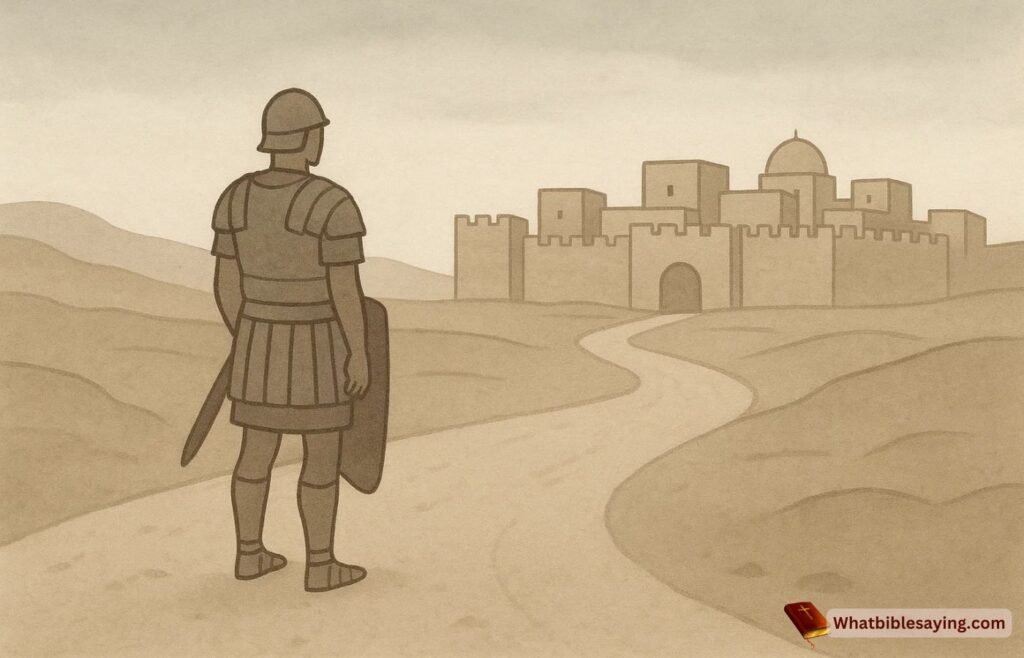What Did Atticus Do In The Bible? The Truth Behind the Name
If you’ve been watching The Chosen or reading about biblical dramas, you may have paused and thought Wait, what did Atticus do in the Bible? Maybe you saw him trailing Jesus in a Roman cloak, whispering orders, or staring with suspicion as miracles unfolded. It’s a compelling image. But is it based on Scripture?
Let’s slow down, take a closer look, and separate fact from fiction when it comes to Atticus, Rome, and the Bible.
Is Atticus from The Chosen in the Bible?
Find answer the main question right away:
No, Atticus is not mentioned anywhere in the Bible.
The character “Atticus Aemilius” from The Chosen is a fictional creation a Roman investigator introduced to give viewers a different lens on the life of Jesus. He’s portrayed as sharp, curious, and caught between duty and truth.
But while Atticus himself isn’t in the Bible, the idea of Roman officials observing Jesus isn’t far-fetched. In fact, several Romans appear in the Gospels just not by the name Atticus.
So where might the inspiration come from?
What Is Atticus’s Role in the Bible-Inspired Story?
While Atticus isn’t biblical, his role reflects real elements of Roman rule in Judea during Jesus’ time.
In The Chosen, he’s depicted as a Roman Cohortes Urbanae officer, something like a special investigator. He’s often seen monitoring the movements of Jesus, trying to assess whether He poses a threat to Roman order.
This role mirrors real Roman interests at the time. Rome didn’t like uprisings. And someone drawing massive crowds healing the sick, feeding the hungry, teaching radical messages could quickly become a problem for both Jewish leaders and Roman governors.
Atticus represents this tension, standing in as a “what if” Roman watcher a lens through which the audience sees both political concern and quiet curiosity about Jesus.
Was There a Roman Soldier Who Believed in Jesus?
Yes. And he is in the Bible.
One of the most moving stories in the Gospels comes from Matthew 8:5–13 and Luke 7:1–10. A Roman centurion approaches Jesus, asking Him to heal his servant. But instead of demanding or posturing, the centurion shows profound humility and faith, saying:
“Lord, I am not worthy to have you come under my roof, but only say the word, and my servant will be healed.”
Matthew 8:8
Jesus is astonished and praises the man’s faith, saying He hadn’t seen such faith even in Israel.
This unnamed centurion shows us that even in a world divided by power, politics, and fear, faith can rise from unexpected places even from Rome.
In some ways, Atticus from The Chosen seems loosely inspired by this idea: a Roman who, despite his role, begins to see something more in Jesus.
Atticus Aemilius A Historical Name?
Yes, in the broad Roman context.
The name “Atticus Aemilius” sounds authentically Roman because it is. “Aemilius” comes from a well-known Roman family line gens Aemilia which included powerful politicians and generals. “Atticus” was also a Roman name, most famously borne by Titus Pomponius Atticus, a friend of Cicero.
However, there is no record of an Atticus Aemilius involved in the life or death of Jesus historically or biblically. So while the name is fitting, it’s fictional.
Who Is Gaius in the Bible?
Now, get into pivot to another Roman-sounding name: Gaius.
Unlike Atticus, Gaius is mentioned in the Bible. In fact, there are several people named Gaius:
Gaius of Corinth – Paul baptized him personally (1 Corinthians 1:14).
Gaius of Derbe – A companion of Paul on missionary journeys (Acts 20:4).
Gaius addressed in 3 John – A believer commended for his faith and hospitality.
These Gaiuses weren’t Roman officials but early Christian believers.
In The Chosen, Gaius is another Roman character often portrayed as a centurion or soldier who becomes sympathetic to Jesus and His followers. He, too, is fictionalized but may draw inspiration from the faithful centurion in the Gospels or even the jailers and soldiers who witnessed miracles in Acts.
Who Was Quintus in the Bible?
Another name you’ve probably seen in The Chosen is Quintus.
Quintus, like Atticus, is not in the Bible.
In The Chosen, Quintus is shown as a Roman official (usually a Praetor or local authority figure) who is suspicious of Jesus and often in conflict with Jewish leaders and other Romans.
His character helps represent the broader tension between Roman power and Jesus’ growing influence, but he is not pulled from Scripture or early Church history.
So… Who Were the Real Roman Figures Around Jesus?
Here we will now talk briefly about the real Roman players who are in the Bible:
Pontius Pilate – The Roman governor who presided over Jesus’ trial and authorized the crucifixion (Matthew 27).
The Roman Centurion at the Cross – Who said, “Truly this was the Son of God” after Jesus died (Matthew 27:54).
The Faithful Centurion – Already mentioned above.
Cornelius – Another centurion described in Acts 10, who became one of the first Gentile converts to Christianity.
These are the Romans that Scripture speaks of directly. Their stories reflect moments of authority, power, and surprisingly, faith.
Why Do Modern Shows Like The Chosen Add Characters Like Atticus?
It’s a good question. And here’s a thoughtful answer:
Adding characters like Atticus lets writers and directors explore the biblical world more fully. It creates a backdrop where Jesus’ teachings can be contrasted against cultural, political, and personal struggles of the day.
Atticus gives us:
A Roman perspective.
An outsider’s curiosity.
A slow, unfolding journey toward truth.
These fictional arcs allow audiences to ask deeper questions:
What if I were Roman?
Would I believe?
Would I be threatened?
Or would I watch and wonder?
Atticus may be fictional, but he represents a very real kind of person.
What Can We Learn from Atticus, Even If He’s Not in the Bible?
Sometimes the most meaningful stories aren’t word-for-word from Scripture, but inspired by it.
Atticus reminds us that people on the outside those with doubt, skepticism, or even authority can still have a journey toward faith. He may not be biblical, but his path reflects many real ones: cautious, curious, watching… and then maybe, eventually, believing.
Just like the centurion.
Just like you.
Just like me.
Final Reflection
While Atticus never walked the dusty roads of Galilee or stood in Pilate’s court, the idea of him touches something real. He’s a mirror to our questions, our wrestlings, and our hope that truth when encountered up close changes even the hardest hearts.













